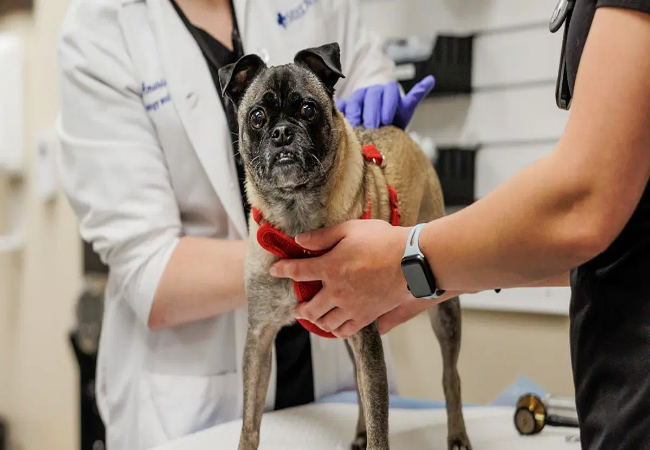Vet’s 2025 Guide to Mast Cell Tumors in Dogs 🩺🐾

In this article
Vet’s 2025 Guide to Mast Cell Tumors in Dogs 🩺🐾
By Dr. Duncan Houston BVSc
Mast cell tumors (MCTs) are the most common skin cancer in dogs, originating from immune mast cells that release histamine. They vary widely in behavior, from benign nodules to aggressive, metastatic cancers. In this detailed 2025 guide, we cover recognition, diagnostics, grading, staging, and all current treatment and supportive care strategies, including surgery, intratumoral injections, targeted drugs, and brand partnerships with Ask A Vet. 🌟
1️⃣ What Are Mast Cell Tumors?
MCTs derive from mast cells, part of the immune system, that proliferate abnormally in the skin, subcutis, or organs. They account for about 14–21 % of all canine skin tumors.
2️⃣ . Who Is at Risk?
- Middle-aged dogs are most affected, but any age can be involved.
- Breed predispositions include Boxers, Boston Terriers, Bulldogs, Pit Bulls, Golden Retrievers, Beagles, and Pugs.
3️⃣ Signs You Might Notice
- Firm, round skin masses—prone to fluctuation due to histamine release.
- Mast cell degranulation can cause redness, swelling, vomiting, diarrhea, collapse.
- Ulceration or regional lymph node enlargement may be present.
4️⃣ Diagnosis & Grading
- FNA cytology is the initial step—mast cells have distinctive granules.
- Biopsy provides histopathology grading: Patnaik (I–III) or Kiupel 2-tier (low/high). Grade strongly correlates with prognosis.
- Immunohistochemistry for KIT and Ki-67 gives deeper prognostic insight.
5️⃣ Staging for Spread
- Low-grade solitary tumors rarely metastasize (~2–16%), and full staging may be optional.
- For intermediate/high-grade tumors, staging includes chest X-rays, abdominal ultrasound, and lymph node aspirates.
6️⃣ Treatment Options
✂️ Surgery (Gold Standard)
- Wide excision with 1–3 cm margins plus one fascial plane, adjusted by histologic grade.
- Removal of regional lymph nodes if abnormal.
💉 Stelfonta (Tigilanol Tiglate)
- FDA-approved intratumoral injection for non-metastatic MCTs, works within hours.
- 75 % complete response with single dose; 88 % with 2 doses; low recurrence at 12 months.
- Requires concurrent antihistamine, steroid, and analgesia.
🧪 Targeted & Systemic Therapy
- Toceranib (Palladia) and masitinib target KIT mutations and angiogenesis.
- Used post-surgery or for unresectable/high-grade tumors—improves survival and disease control.
📦 Chemotherapy & Radiation
- Protocols include vinblastine, CCNU, lomustine ± prednisone.
- Radiation therapy is ideal for incompletely excised tumors in difficult locations.
7️⃣ Prognosis & Outcomes
- Low-grade tumors treated surgically have >2-year survival; intermediate/high-grade have variable outcomes.
- High-grade cases without surgery have poor prognosis, median survival of ~4 months; those treated surgically may survive ~1 year.
- Use of TKIs and Stelfonta can significantly extend survival even in challenging cases.
8️⃣ Follow‑Up & Monitoring
- Every 3–6 months: physical exams, skin checks, and lymph node palpation.
- Re-imaging or aspirating when recurrence or spread is suspected.
- Long-term monitoring is key even in low-grade cases.
9️⃣ Supportive Care Strategies
- Ask A Vet: Telehealth for treatment planning, side effect management, and wound care post-surgery or injection.
🔟 When to Call the Vet Immediately
- New or changing skin lumps.
- Signs of mast-cell degranulation: swelling, vomiting, GI upset.
- Ulceration, bleeding, or surgical site concerns.
- Side effects from systemic therapy: GI upset, lameness, lethargy.
🏁 Final Thoughts
In 2025, our approach to mast cell tumors is more precise and hopeful than ever. Early detection, accurate grading, strategic staging, and a modern arsenal—including surgery, Stelfonta, TKIs, chemotherapy, and radiation—allow for highly customized care. Add in telehealth via Ask A Vet and recovery and most dogs can navigate MCTs with strong outcomes and quality of life. 🐶❤️
Need help with treatment planning, injections, or follow-up checks? Visit AskAVet.com and download the Ask A Vet app—trusted support for your dog's oncology journey. 📱🐾






